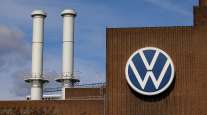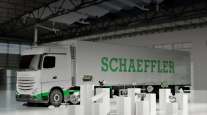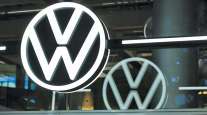VW Boosts Future Tech Spending, Enlarges Management Board

[Stay on top of transportation news: Get TTNews in your inbox.]
Volkswagen AG raised its five-year spending plan and overhauled its management board, seeking to catch up with Tesla Inc. and end an internal dispute over the changes needed to get there.
The German company will invest 159 billion euros in total in the next half-decade, of which 89 billion euros are for technologies like software and electric cars. That’s more than in last year’s rolling plan, pointing to a faster departure from combustion engines. By 2026, about a quarter of all sales will be electric only, VW predicted.
VW’s aggressive transformation hasn’t been without controversy, and CEO Herbert Diess has come under fire from labor representatives accusing him of plotting mass layoffs to make VW more nimble.
Diess’ position at the helm was the subject of public debate in recent weeks, and Chairman Hans Dieter Poetsch sought to quell any speculation about his future by calling Diess an “agent of change.” At the same time, the CEO ceded some tasks to others on the management board, which has now swelled to 12 members.
Software will be THE competence to decide @VWGroup’s success in the #NEWAUTO world! For that reason @Herbert_Diess takes over responsibility for @CARIAD where our VW.OS will be developed. We expect software-based services to account for 1/3 of revenue in the mobility market 2030! pic.twitter.com/OUqzRImJbx — Volkswagen Group (@VWGroup) December 9, 2021
“Our exceedingly robust and solid financial base enables us to finance the necessary investments on our own,” Poetsch said in a statement. “We are also therefore very confident that these investment decisions will steer the Volkswagen Group to future success.”
Among the changes in responsibility announced Dec. 9, Diess will hand control of VW’s China business to Ralf Brandstaetter, the head of VW’s main car brand. VW also named a new head of legal affairs to the board and elevated Hildegard Wortmann from its Audi unit as new head of sales.
In a nod to worker representatives keen to keep a strong power base at home, VW confirmed a plan to add a new electric car factory near is global headquarters in Wolfsburg. The site will produce some 250,000 vehicles as part of the “Trinity” project.
Diess acknowledged the difficult discussions by referring to an “intense process” in the run-up to the Dec. 9 unveiling. At the same time, he said he never lost the desire to run the carmaker, calling the job “very close to my heart.”
56% of our total investments are going into future technologies = new record
With this action, the #VWGroup is pushing ahead the implementation of its #NEWAUTO strategy. See the numbers that count here pic.twitter.com/ISFsxjA5V9 — Volkswagen Group (@VWGroup) December 9, 2021
Europe’s largest automaker is working to get its overhaul back on track after momentum fizzled in recent months when chip supply bottlenecks disrupted manufacturing and the carmaker lost market share in China, its biggest market. After delivering a much-praised electric vehicle strategy in March to tackle Tesla’s dominance, renewed infighting among key stakeholders has overshadowed the industry’s biggest push into electric cars.
In the run-up to the meeting, Diess caused outrage among powerful worker representatives by suggesting that massive job cuts might be needed to compete with much nimbler rivals like Tesla that’s about to start making cars at a new factory near Berlin. The brouhaha caused the Dec. 9 supervisory board meeting to be delayed by a month and speculation about Diess’ future as CEO.
Beyond internal wrangling, VW shares got a boost this week after Handelsblatt reported that the Porsche and Piech family is exploring a sale of part of their stake in the automaker to support a separate listing of the Porsche sports car subsidiary, while no decision has been made. A spokesman for Porsche SE declined to comment on the report.
The shares have gained about 20% so far this year.
Want more news? Listen to today's daily briefing below or go here for more info:




